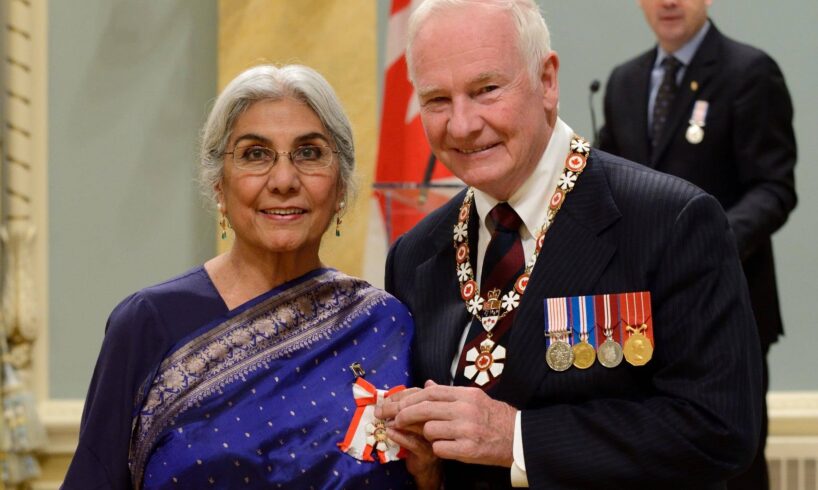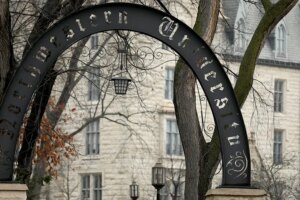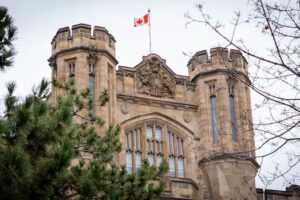
Open this photo in gallery:
Alia Hogben, left, and David Johnston at an Order of Canada investiture ceremony in 2012.Sgt Ronald Duchesne
Alia Hogben, a trailblazing Muslim social worker, championed the welfare of children and women for over half a century in Canada and abroad.
As an early member of the Canadian Council of Muslim Women (CCMW) in 1982, and later as its executive director, Ms. Hogben advocated for an inclusive, egalitarian vision of Islam in which gender equality and interfaith dialogue were paramount. She received many accolades for her tireless work, including being named one of Canada’s 50 most powerful people by Maclean’s Magazine in 2014.
Yet Ms. Hogben remained modest and self-deprecating throughout her life, which ended peacefully on June 16, 2025, at Brockville General Hospital.
Alia Abdul Rauf was born on Feb. 28, 1937, in Rangoon, Burma (now Myanmar), then under British rule. Hers was a busy household; she was one of ten children raised by her mother, Maqsood Jehan Begum Meer, and her father, Dr. Mohammed Abdul Rauf, an Oxford-educated lawyer.
Life was upended when Japan invaded Burma during the Second World War. The family lost everything and fled to Ms. Hogben’s mother’s birthplace of Allahabad, India. There, her father immersed himself in the Indian nationalist movement, working closely with Jawaharlal Nehru, who later appointed Dr. Abdul Rauf as India’s first representative to Burma, followed by a posting in Japan.
In 1954, he was appointed India’s High Commissioner in Canada. And thus, at the age of 17, Ms. Hogben arrived in Ottawa, a world traveller who had experienced first-hand a diversity of cultures, peoples and beliefs, as well as the devastation of war. Along the way, she had developed a deep love for reading and knowledge, which she attributed to her father. Ms. Hogben also inherited his deep spirituality and respect for the intellectual tradition of Islam. She was a thinking Muslim through and through, asking questions within the faith, from an early age.
Ms. Hogben initially thought of following in her father’s footsteps to embark on a law career. But, as she told The Globe and Mail in 2016, she was drawn by an urge to help others and instead pursued social work.
While studying towards a B.A. degree at Carleton University, her independence emerged from beneath the watchful eye of her father on two meaningful occasions.
Master photographer Yousuf Karsh spotted Ms. Hogben in Ottawa’s diplomatic circles. Impressed by her beauty, Mr. Karsh asked her father’s permission to photograph the young woman. He declined, but eventually gave way, leading to two sittings of “Miss Alia Rauf” at Karsh’s studio. Her portrait was published in an August 2, 1958 issue of Maclean’s, alongside those of Ingrid Bergman, Princess Grace of Monaco and Joan Crawford.
During her studies, Ms. Hogben developed a friendship with fellow student Murray Hogben. The two wanted to marry, but her parents disapproved: he was neither Indian, nor Muslim. Mr. Hogben was bewildered, as he had no idea what a Muslim was – this being Canada in the 1950s. She explained to him the basics of the faith: belief in one God (Allah, in Arabic), undivided; acceptance of all the prophets from Adam to Abraham to Moses, Jesus and Mohammed; the pillars of prayer, fasting, charity and pilgrimage. He liked these and was also attracted by the panorama of different peoples, cultures, art and architecture within the faith. Mr. Hogben loved its simplicity and dove into its teachings, converting to Islam shortly thereafter.
Dr. Abdul Rauf still wasn’t convinced; he sent Ms. Hogben away to Burma and India for a year to discourage the young couple. They weren’t dissuaded. During her absence, Mr. Hogben leaned further into the faith, while establishing financial stability. Eventually, Dr. Abdul Rauf signalled his approval from Belgium. Mr. Hogben flew to Brussels where the two were finally married in 1959. In looking back, they realized that Islam had been key in bringing them together, serving as a strong bond between them. During their 66 years of marriage, they grew together through deepening their understanding of the faith.
Soon after, they moved to Toronto and immersed themselves in the small but growing Muslim community, composed primarily of Albanians, Bosnians and international students. Mr. Hogben became the secretary of the Muslim Society of Toronto, while Ms. Hogben taught Sunday school. They arranged for lectures, community events, and informal counselling while working, studying and raising three children.
Ms. Hogben stayed true to her roots, refusing to ditch her sari when looking for work in Toronto during the 60s. In fact, her resplendent saris became her trademark for decades, until she later switched to the more comfortable, yet elegant, shalwar kameez.
One year, Ms. Hogben and her husband had the opportunity to meet El-Hajj Malik El-Shabbaz (formerly Malcolm X) when he was in Toronto for a Front Page Challenge taping. He accepted their invitation to speak at a community event, before which Ms. Hogben prepared a sumptuous meal at their home. Mr. El-Shabbaz had broken from the Nation of Islam and its racist teachings, accusing its leadership of corruption. Knowing that he was a marked man, he worried about his four daughters. Ms. Hogben soothingly reassured him, noting that the Prophet Muhammad affectionately raised daughters. Months later, Mr. El-Shabbaz was assassinated, much to her horror.
Ms. Hogben earned a Master’s in Social Work from the University of Toronto, and spent a good part of the next 35 years immersed in social work, serving as a program supervisor with the Ontario Ministry of Community and Social Services. She cared deeply for the lives of women and children, focusing on child welfare, children’s mental health, support for adults with developmental disabilities, and addressing violence against women and girls. Her empathy emanated from her belief that her good fortune was both a blessing and a test from God as to how to use it to help others.
Through her work she witnessed first-hand the difficulties faced by the most vulnerable members of society. As a Muslim woman, it particularly pained her to see unjust traditions applied to the detriment of women and girls in local Muslim communities. Ms. Hogben wasn’t shy to address taboo subjects such as domestic violence, forced marriages, polygamy and female genital mutilation.
After retiring from the Ontario government, Ms. Hogben became the executive director of the Canadian Council of Muslim Women (CCMW) in 2002, holding the position until 2018. It was during this era that Ms. Hogben made her mark on Canadian society, improving the lives of so many with her fiercely principled insistence on applying the humane, egalitarian and inclusive teachings of Islam. She also instilled in so many women the confidence to believe in themselves, in their own voices, in their own humanity.
Ms. Hogben fought for these values in opposition to the 2003 proposal by the Islamic Institute of Civil Justice to establish faith-based arbitration tribunals in Ontario to settle disputes over divorce, inheritance and custody, just as Catholic and Jewish communities had done since 1991. Ms. Hogben argued forcefully that the application of sharia family law, with its roots in traditional Muslim societies, would lead neither to fairness nor justice for Muslim women living in Canada; the Canadian Charter of Rights and Freedoms was the law of the land and more than sufficient in her view.
Under her leadership, CCMW built alliances across Canada to force Ontario Premier Dalton McGuinty to rescind the use of religion in family arbitration in 2005. In this, Ms. Hogben had her finger on the pulse of Canadian Muslim women: a 2006 Environics Poll of Muslims showed that 70 per cent of Muslim women in Canada felt that the quality of life for Muslim women was better in Canada compared with most Muslim countries – an opinion shaped by the nation’s commitment to equality as enshrined in the Charter.
Following this victory, Ms. Hogben spearheaded many policies geared towards the betterment of Muslim women’s lives through education and research. She emphasized that with rights came responsibilities for Muslims to contribute to the betterment of Canada. At the same time, Ms. Hogben and Mr. Hogben had opened their expansive farm near Gananoque, Ont., as an oasis for dialogue, brainstorming and good-old-fashioned human hospitality, welcoming guests from near and far into a safe space for critical inquiry.
As an articulate spokeswoman, Ms. Hogben was invited by Foreign Affairs in 2007-2008 to speak on the role of Muslim women in Canadian society and Canadian values of diversity in Damascus, Amman, Beirut and Rome. At an event hosted by the Grand Mufti of Syria, a political officer at the Canadian embassy recalled Ms. Hogben gracefully staring down a stern audience of Syrian imams crowding the first two rows of the audience, who felt a certain lack of dignity in having to receive a speech on Islam from a foreign woman, unveiled. Such was her courage and dignity.
The accolades mounted, including honourary doctorates from Queen’s University (2011) and the University of Toronto (2022). In 2012, she was appointed to the Order of Canada, lauded for her use of persistence and reason to contribute “to a broader understanding of women and Islam, in Canada and abroad.” Ms. Hogben also wrote a number of articles for books and a monthly column on women, Islam and other issues for The Kingston Whig-Standard.
Although she was a well-known and powerful advocate for Muslim women throughout her life’s journey, Ms. Hogben remained humble, as her main concern was their welfare, and not personal accolades.
In spite of all the darkness she saw, Ms. Hogben never grew despondent; the injustices only fuelled her insatiable appetite for justice, compassion and healing. All those who met her remember her warmth, her cheerful smile and her generosity of spirit. In 1958, Yousuf Karsh presciently remarked that “Alia will never lose her beauty.” Indeed, she possessed an inner beauty that deepened over time. Her legacy lives on in the institutions and policies she championed. But most importantly, in the lives of those she affected with her sincere advocacy and mentorship.
Ms. Hogben is survived by her husband Murray, children Noor (John Henson) and Omar (Wendy Fu) and by grandchildren Bibijehan, Shakoor and Isra Henson, and by Reza Hogben.
You can find more obituaries from The Globe and Mail here.
To submit a memory about someone we have recently profiled on the Obituaries page, e-mail us at obit@globeandmail.com.





